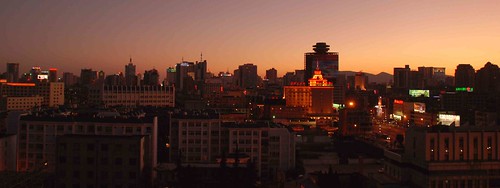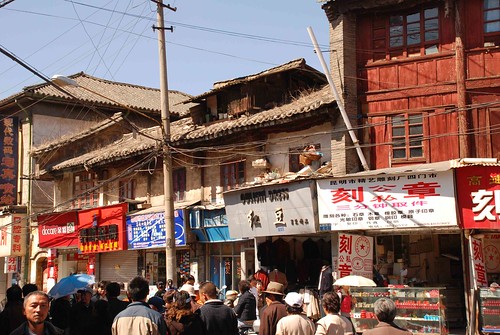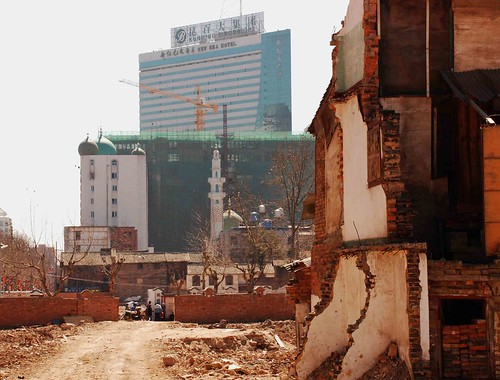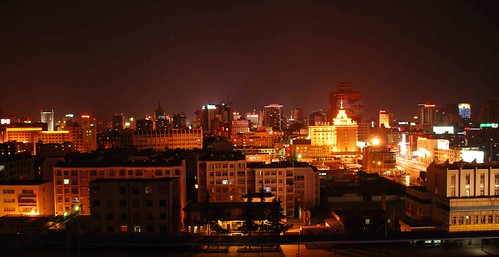
The concept of home has become a difficult notion for me over the past few years. I love my family, and there’s still a soft spot in my heart for the suburban wasteland outside of DC that I grew up in, but I’ve been away for a long time, and my loyalties are conflicting. Since coming to China, the place I identify with most has always been Yunnan, and my most familiar and comfortable roost has been its capital, Kunming.
So naturally that’s where I went for my week vacation during the Chinese New Year. Though I’ve been in Beijing for close to a year now, I never had time to sort out my old Kunming apartment and all the stuff I had left there. My main goal last week (actually number 2 after relaxing and soaking up sun) was to empty out my old apartment for good and move a few things into an apartment that I share with a couple of friends.
My week in Kunming was an excellent one. Every day was warm and sunny, and I had plenty of time to track down my old friends and check up on my old haunts. But though a lot of Kunming’s essence remains the same, it dawned on me this time just how much has changed since I first got here.

When I first came to Kunming in 2000, the city had just stuttered through its first wave of modernization. The first cluster of skyscrapers had just emerged from a sea of low soviet concrete housing blocks and mud-brick traditional homes. Rush hour traffic was a mass of bicycles and pedestrians in the middle of the road. Much of the street life in Kunming took place in a maze of winding patchwork alleys lined with organic clusters of old buildings and lean-tos. Every night the streets filled with shao-kao tables, Kunming’s famous do-it-yourself barbecue style.
The Kunming of the time was a laid back city filled with old men in Mao suits, horse carts and street markets. Orchids and cacti sprouted from cracks in the mud-brick walls, and hemp plants shot up from cracks in the sidewalk. Old ladies sat in the shade of ancient gingko or eucalyptus trees playing endless games of Mah-jongg while young couples hid in the shade of the willows at Green Lake Park and the city was constantly bathed in a mellow golden sunshine as old men on the rooftops guided fleets of pigeons across the skyline.
Those were much simpler days for our tiny foreigner community too. We all knew each other then as we zipped around the city on our mountain bikes, meeting up for a smoke after class, sipping cheap beers on a friend’s balcony overlooking the peasant slums of Kunming’s west side. The locals were still curious and enamored of us strange pilgrims, welcoming us into their homes, offices and disco tables, and shouting “hello” at every corner. The only things I had to juggle with my bicycle journeys were Chinese and Taichi classes, and though we knew a bit about the dark underside to society and politics around us, we were rarely confronted with it.
Our main difficulty was making life a little more comfortable in a city with poor plumbing, erratic electricity, and almost no western food. In the days before the western franchises flooded the landscape, the most exciting topic of conversation was often the arrival of a new amenity like passable wine or edible cheese or maybe even a makeshift Thanksgiving dinner.
This is the environment where I fell in love with China, and learned how to function in this otherworldly society. In fact, most foreigners who were there at the time came out fluent in the language and culture. We have since fanned out across the continent, and flourish in situations that frazzle many self-proclaimed China hands. Unlike a lot of foreign communities in larger cities, we didn’t come out here just to make a buck. There was something about Kunming that attracted the eccentric romantics. We were there for a way of life.

The Kunming I saw last week was much different, as was I. I haven’t left the city for very long, and I go back a lot. Maybe it was that I spent the whole week sifting through nearly seven years of accumulated mementos and reminders of my time here.
Most of the old city is gone now, the wreckers having yielded, if only temporarily, to a mere three neighborhoods. Gone is Meat Street, the sprawling old Muslim Quarter downtown that was lined with drying beef and lamb. Nearly gone is the famed bird and flower market. The shaokao tables have been relegated to a few shoddy neighborhoods on the outskirts of town. The bicycle traffic has given way to auto-gridlock interlaced with the muffled drone of electric scooters. In place of all this are an ever-growing number of high rise apartment complexes with names like MoMa, Norwegian Wood and Green Card (ISYN!), touting their mastery of the foreign lifestyle, offering modernity and civilization priced by the square meter.
I have changed with the city, as well as apart from it. Each time I go back, I juggle my nights between various banquets and meetings with local businessmen, officials and friends, and every move is carefully calculated to maintain my social networks and not slight anyone, a very important aspect to business in China.
When I’m burning the midnight oil in the Beijing office or negotiating my way across this concrete monstrosity in the haze and flying dust, my mind wanders back to the old Kunming, basking in the warm February sun, downing a horrible cup of coffee at Journey to the East.
Kunming seems a bit boring in comparison to its previous incarnation. But it’s still a laid back city, and the golden highland sun still penetrates every corner. I wish there was still a place like the one I first knew, but I’ll settle for the one I can take. We’ve sold out and moved into a luxury high rise, but we can watch over our beloved city from the balcony, and the pigeons still zip between the solar water heaters on the rooftops. Progress is not always absolute or in a straight line. I can’t help feeling that the people of Kunming have paid a dear price for their new digs. But I’ll still keep going back at the drop of a hat, and I’ll still wear my time in Kunming as a badge of pride.
But I still haven’t settled the real question at hand, what is home?

No comments:
Post a Comment